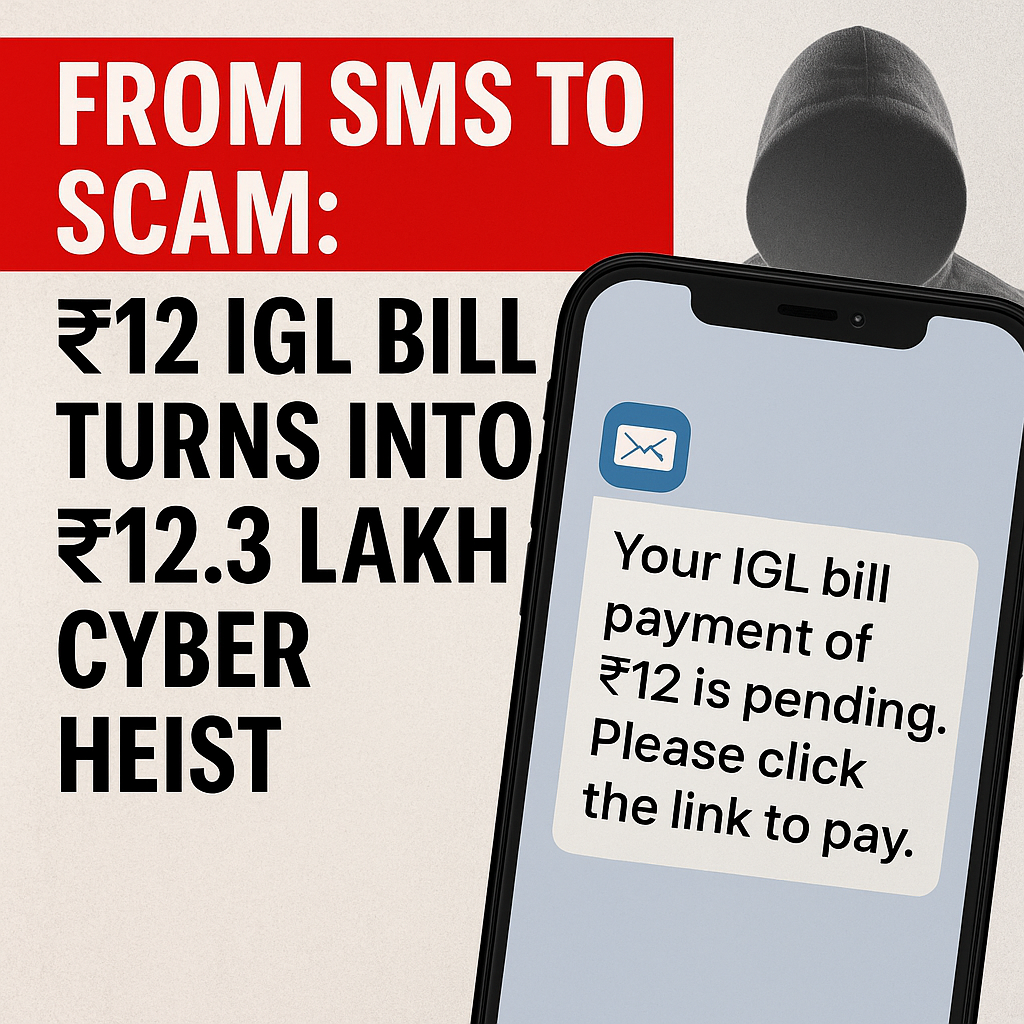
What began as a modest ₹12 gas bill turned into a digital heist when a resident of Noida’s Sector 74 lost ₹12.3 lakh to cybercriminals posing as representatives of Indraprastha Gas Limited (IGL). The fraud was carried out through a now-common but increasingly effective method — a fake payment link sent under the pretext of a pending utility bill. This case is a stark reminder of how easily digital trust can be exploited in India’s rapidly digitising society.
The victim, Brij Bhusan Prasad, is not an uninformed villager or an unaware layman. He is an employee of the Nuclear Power Corporation of India Limited (NPCIL), a technical and prestigious post, yet that did not shield him from the cunning sophistication of cyber fraudsters. On July 11, he received a call from a man claiming to be from IGL. The caller informed him that he had an overdue gas bill of ₹12 and sent a payment link via WhatsApp.
A click and a “Yes” was all it took.
Once the victim followed the instructions and confirmed the action, his phone was hacked. According to the cybercrime police station in Noida, the suspect froze the screen display of Prasad’s phone, making it impossible for him to disconnect the call or interrupt what was happening in the background. In the brief window that followed, the attacker gained remote control of the phone, siphoning off ₹12.3 lakh from his bank account through a series of rapid transactions.
It wasn’t until two days later, when Prasad began receiving alerts from his bank, that he discovered he had been robbed. The damage had already been done.
Police have registered a case under sections 318 and 319 of the Bharatiya Nyaya Sanhita and the IT Act. Investigations are ongoing, and authorities are trying to trace the digital footprints of the scammer. However, cases like these often span state and international boundaries, making resolution complicated and recovery uncertain.
IGL has since issued a public statement disassociating itself from such fraudulent communication. “We have been alerting our customers for the past six months through WhatsApp and social media not to click on any link provided by individuals claiming to represent IGL,” said a company spokesperson. “All communication from us is channeled through official sources only. We ask customers to verify authenticity before proceeding with any payment.”
It is a warning that has come too late for Mr. Prasad, but hopefully not for others.
The psychological design of such scams is what makes them effective. The ₹12 amount is just small enough not to arouse suspicion and just important enough to prompt quick action. The sense of urgency created by the threat of disconnection, especially in urban households heavily dependent on gas utilities, acts as the perfect bait. The scammer’s choice of timing, tone and technological tools shows how modern fraud is evolving. It is no longer about brute hacking or shady phishing emails; it is about emotional manipulation cloaked in credibility.
This case reveals a deeper vulnerability within the digital literacy of even educated Indians. While mobile banking and digital payments have become widespread, awareness about cyber fraud has not kept pace. People continue to click on unknown links, trust unverified calls, and share sensitive data without verification. Cybersecurity is not just a technical issue anymore; it is a behavioural challenge.
The role of service providers in mitigating such risks cannot be overstated. Utility companies like IGL must go beyond issuing general advisories. They must collaborate with law enforcement, conduct regular public awareness drives, and invest in AI tools that can detect and report fake websites or numbers impersonating their brand.
For the public, the lesson is clear. No utility service will demand ₹12 over a WhatsApp message. No legitimate company will freeze your phone screen to collect a payment. And no click, however urgent it seems, is worth risking your bank balance.
As India continues its march toward a cashless future, digital trust must be earned and protected. One mistaken click should not be enough to erase a lifetime’s savings.





















